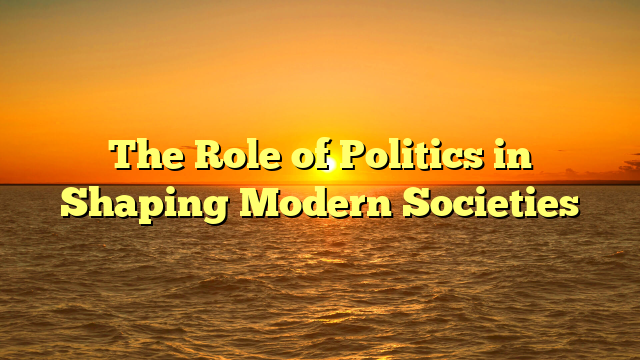Politics is a fundamental aspect of human civilization that determines how societies are organized, governed, and developed. At its core, politics involves the distribution of power and resources, the creation of laws, and the establishment of systems to maintain order and resolve conflicts. In the modern world, politics continues to play a crucial role in shaping nations, influencing economies diponegoro4d, and addressing global challenges.
One of the central functions of politics is governance. Governments, whether democratic, authoritarian, or hybrid in nature, rely on political processes to make decisions that impact citizens’ daily lives. Through policymaking, leaders decide on issues such as taxation, healthcare, education, and infrastructure. The quality of governance often reflects the effectiveness of a country’s political system. In democracies, citizens have the right to vote, ensuring that political leaders are accountable and represent the will of the people. In contrast, authoritarian systems may prioritize stability and control, sometimes at the expense of individual freedoms.
Politics also plays a key role in managing diversity within societies. Modern nations are often made up of people with different cultural, religious, and ethnic backgrounds. Political systems provide mechanisms for negotiation, compromise, and conflict resolution to ensure social harmony. For instance, parliaments and legislatures often serve as platforms where various interest groups debate and advocate for their concerns. While disagreements are inevitable, the political process provides a structured way to handle differences peacefully.
Another important aspect of politics is its influence on the economy. Economic policies, such as trade agreements, taxation, and labor laws, are products of political decision-making. For example, governments decide how resources are allocated and whether markets should be regulated or left to function freely. Political ideologies, such as capitalism, socialism, or mixed economies, determine the extent of state involvement in the economy. In this way, political debates directly affect employment rates, income distribution, and social welfare.
In addition, politics extends beyond national borders to shape international relations. Diplomatic negotiations, alliances, and treaties are all products of political strategy. Issues such as climate change, terrorism, and global trade require cooperation between nations. International organizations, including the United Nations and the World Trade Organization, exist to facilitate dialogue and collective action. Without political agreements, solving global challenges would be nearly impossible.
However, politics is not without its flaws. Corruption, polarization, and the misuse of power are persistent problems that undermine public trust. In many countries, political leaders may prioritize personal or party interests over the common good. This creates frustration among citizens and can lead to protests, social unrest, or even political instability. The rise of populism in recent years also demonstrates how political discourse can be manipulated, sometimes deepening divisions within society.
Despite its imperfections, politics remains indispensable. It is the arena where ideas about justice, equality, and progress are debated and tested. Citizens play an essential role in ensuring that politics works for the benefit of all by staying informed, voting, and holding leaders accountable. In democratic systems especially, political engagement is both a right and a responsibility.
In conclusion, politics is more than just elections, debates, or government actions. It is the foundation upon which societies are built and sustained. From shaping domestic policies to addressing international challenges, politics determines the direction of nations and the well-being of their people. While it can be messy and controversial, politics is ultimately about striving to create systems that reflect the values, aspirations, and needs of society. Understanding and participating in politics is, therefore, vital for anyone who seeks to contribute to a better future.
